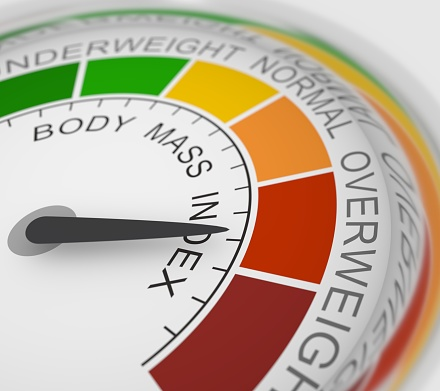Did you know that according to 2016 statistics, 650 million adults in the world are obese? There are many things that cause obesity. The western pattern diet (WPD) or standard American diet (SAD) is full of unhealthy food like processed meat, candy and sweets, and fried food. If every adult decides to lead a healthier lifestyle, the numbers will decrease drastically. You should start and look for ways to lose weight and be healthy. Many methods include a healthy diet, exercise, and/or bariatric surgery. Who should undergo weight-loss surgery? If you’re wondering if it’s suitable for you, here’s how to know.
- Your BMI is Over 40
 BMI is the Body Mass Index, which indicates if you’re underweight, normal, overweight, and obese. You can calculate it by dividing your weight by the square root of your height. If it’s from 30 to 39.9, that means you’re obese. If it’s from 40 and higher, that means you’re morbidly obese. While your BMI doesn’t necessarily indicate how healthy you are, a number as high as 40 could mean you’re at risk of many diseases. Those diseases include type 2 diabetes and cardiovascular conditions. If you calculate your BMI and it’s over 40, you’re mostly qualified for bariatric surgery.
BMI is the Body Mass Index, which indicates if you’re underweight, normal, overweight, and obese. You can calculate it by dividing your weight by the square root of your height. If it’s from 30 to 39.9, that means you’re obese. If it’s from 40 and higher, that means you’re morbidly obese. While your BMI doesn’t necessarily indicate how healthy you are, a number as high as 40 could mean you’re at risk of many diseases. Those diseases include type 2 diabetes and cardiovascular conditions. If you calculate your BMI and it’s over 40, you’re mostly qualified for bariatric surgery.
- You Know and Understand the Risks
There are risks that come with weight-loss surgeries that you need to know and understand. These risks include bowel obstruction, hernias, hypoglycemia, acid reflux, among more. You can go online or consult a doctor to know more about risks associated with weight-loss surgeries. You could weigh the risks, along with the risks of staying obese, and decide which is more health-threatening for you. It’s also important to know how to prepare for the surgery, and what to expect after it’s done.
- You Have Another Medical Condition
Many conditions are caused by obesity. If your BMI is below 40 but higher than 35, you can still qualify for the surgery. But that applies if you have another medical condition. The condition could be type 2 diabetes, sleep apnea, heart diseases, or any life-threatening conditions. Obesity is the number one cause of type 2 diabetes, which can cause damage to many organs. It can cause eye damage, kidney damage, nerve damage, hearing impairment, and skin conditions. That makes it important to watch out for symptoms of type 2 diabetes and to do your best to prevent it by changing your lifestyle. Bariatric surgery might help in reversing type 2 diabetes.
- You Tried Diet and Exercise
If your BMI is 35, and you’ve tried diet and exercise for 6 months to no avail, then you’re qualified for weight-loss surgery. There could be many reasons why someone wouldn’t be losing weight through exercise and diet. It could be because you don’t sleep enough, as there are links between insomnia and obesity. It could also be stress, slow metabolism, or having a medical condition. Before deciding to undergo weight-loss surgery because your diet isn’t working, visit a nutritionist. They can help you try different methods but if all fails, you can consider the surgery.
- You Don’t Abuse Alcohol and Drugs
Studies show that some types of bariatric surgeries cause the patient’s body to react differently to alcohol. They are 3 times more likely to pass away from alcohol and/or drug-related causes. Doctors explain that it’s because, in some types of these surgeries, part of the stomach is removed. The stomach and the liver are both responsible for metabolizing alcohol. So it becomes harder for the body to metabolize alcohol.
- Your Doctors Gave you Green Light
 It’s important first and foremost to consult your doctors before deciding to undergo surgery. That includes all doctors you visit regularly for any chronic conditions. If you have type 2 diabetes, you have to consult your endocrinologist. If you have heart disease, consult your cardiologist beforehand. In fact, in some places, you will undergo a psychological evaluation before your weight-loss surgery. That’s not because they think you’re out of it, but it’s because they’re trying to maximize your success. If you’re in a good place mentally, you’re more likely to follow the after-surgery steps like eating well and exercising.
It’s important first and foremost to consult your doctors before deciding to undergo surgery. That includes all doctors you visit regularly for any chronic conditions. If you have type 2 diabetes, you have to consult your endocrinologist. If you have heart disease, consult your cardiologist beforehand. In fact, in some places, you will undergo a psychological evaluation before your weight-loss surgery. That’s not because they think you’re out of it, but it’s because they’re trying to maximize your success. If you’re in a good place mentally, you’re more likely to follow the after-surgery steps like eating well and exercising.
Undergoing a weight-loss journey could be a good step towards bettering your health. It’s not an alternative for lifestyle-changing measures. As you will have to eat less, different quality of food, and exercise after the surgery. It will just give you extra help and accelerate the process of losing weight. What’s important is that you understand the risks of the surgery. And be knowledgeable about the preparations before the surgery and the recovery afterward. This guide may help you, but it’s not an alternative to consulting a physician or making a decision.

